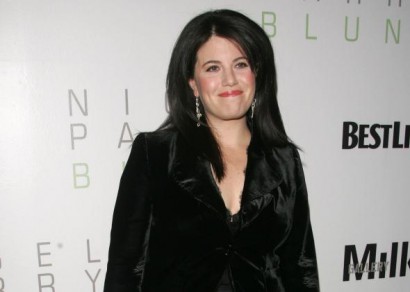Should the Stain of a Youthful Mistake Last Forever?
by Heather Robinson

From The Jewish Week

In June’s Vanity Fair magazine, Monica Lewinsky, now 40, asks the world to reconsider who she is. In her essay, “Shame and Survival,” she writes about how, since 1998, when the news broke about her affair with former President Bill Clinton, humiliation has been her constant companion. She calls out women who consider themselves feminists, some of whom piled on the public humiliation of a then-24-year-old while, in many cases, giving a pass to the then 52-year-old Clinton for his behavior. In particular, she cites a gathering of the “New York Supergals” — a group of feminists who met to publicly dish about the scandal after it broke.
Lewinsky comes across as intelligent, reflective and sensitive in raising awareness about an important issue: what she terms the “culture of humiliation.” She writes, “ … the Internet has seismically shifted the tone of our interactions. The ease, the speed, and the distance that our electronic devices afford us can also make us colder, more glib, and less concerned about the consequences of our pranks and prejudice.”
While she writes, “In 1998, when news of my affair with Bill Clinton broke, I was arguably the most humiliated person in the world,” she does not play the victim. She makes clear, as she did then, that the affair, which began when she was 22, was consensual. She cites the case of Tyler Clementi, an 18-year-old Rutgers freshman who, after a video of him kissing another man went viral on social media, killed himself by jumping off the George Washington Bridge. She wishes she could have told Clementi “that I knew a little of how it might have felt for him to be exposed before the world,” but does not equate herself with Clementi as innocent; unlike him, she writes, her humiliation resulted at least partially from her “poor choices.” At more than one point, she writes, she felt suicidal, and her mother feared she would be “humiliated to death.”
Lewinsky’s effort to raise awareness about the value of respecting the humanity of the individuals about whom we blog and Tweet is important. If you wouldn’t say it to the person’s face, why should you say it in cyberspace?
Moreover, reading the piece got me thinking: What does Lewinsky’s ongoing humiliation suggest about our society?
Is her life on its margins (she writes about her difficulty finding work and being taken seriously, despite her masters degree in social psychology from the London School of Economics) so different from that of a woman in Victorian times who got caught in an affair?
I’m not arguing that infidelity is acceptable, but that, at a time when promiscuity is celebrated (“Sex and the City,” anyone?) it seems unfair that this particular individual is singled out for shame. Is Lewinsky a societal scapegoat, paying the personal price for our collective crumbling standards?
Or is this a case of misogyny?
In many parts of the Muslim world, young women are demonized and even killed for sexual relations outside of marriage. While one person I interviewed argued “that is very different because in the Muslim world, women are physically attacked for falling in love,” I can’t help but wonder if Lewinsky’s humiliation does not bear some faint echo of that type of abuse. And who says she didn’t fall in love? (She writes, “my love life, my sex life, my most private moments, my most sensitive secrets, had been broadcast around the globe.”)
Jewish opinion-makers and other New Yorkers seem to feel it’s time to remove Lewinsky’s “scarlet letter,” and more than one noted the lack of balance in the public’s treatment of her versus its treatment of former President Clinton.
“It took two to tango,” said Allison Josephs, proprietor of the blog Jewinthecity.com, dedicated to combating anti-Orthodox prejudice. “He was an adult, he was the President, and she was an intern, so he should probably have been held to a higher standard of accountability, yet he got a pass from the public while she did not.”
In terms of whether the public should forgive, Josephs noted, “sincere regret and changed behavior” should prompt forgiveness and in Judaism, “Public embarrassment is likened to killing someone so that’s off the table.”
Some believe Lewinsky’s teshuvah should be public.
“I’m sure she has a beautiful soul and I can certainly support her cause [against Internet/social media shaming], but let her apologize to Hillary Clinton and show her altruistic side,” said Rabbi Shmuley Boteach, author of “Kosher Lust.” If Lewinsky wants to rehabilitate her image, the rabbi argues, “let her volunteer at a Jewish school or become the spokesperson for the sanctity of marriage.”
Regular New Yorkers seem to think Lewinsky deserves a clean slate. “Everyone has the right to move on, and she doesn’t? It doesn’t seem fair,” said Alvaro Salazar, 37, a West Village designer. “Come on, she didn’t kill anybody.”
“He was President of the United States, and she was a young woman,” said Hannah Goldstein, 43, a Manhattan photographer. “She made a young person’s foolish mistake, but who hasn’t?”
In her essay, Lewinsky writes she would have appreciated some “good, old-fashioned, girl-on-girl support” at the time of her exposure.
By and large, it seems she has it now.
This entry was written by Heather Robinson and posted on July 8, 2014 at 12:15 pm and filed under Commentary. permalink. Follow any comments here with the RSS feed for this post. Keywords: . Post a comment or leave a trackback: Trackback URL. */?>



